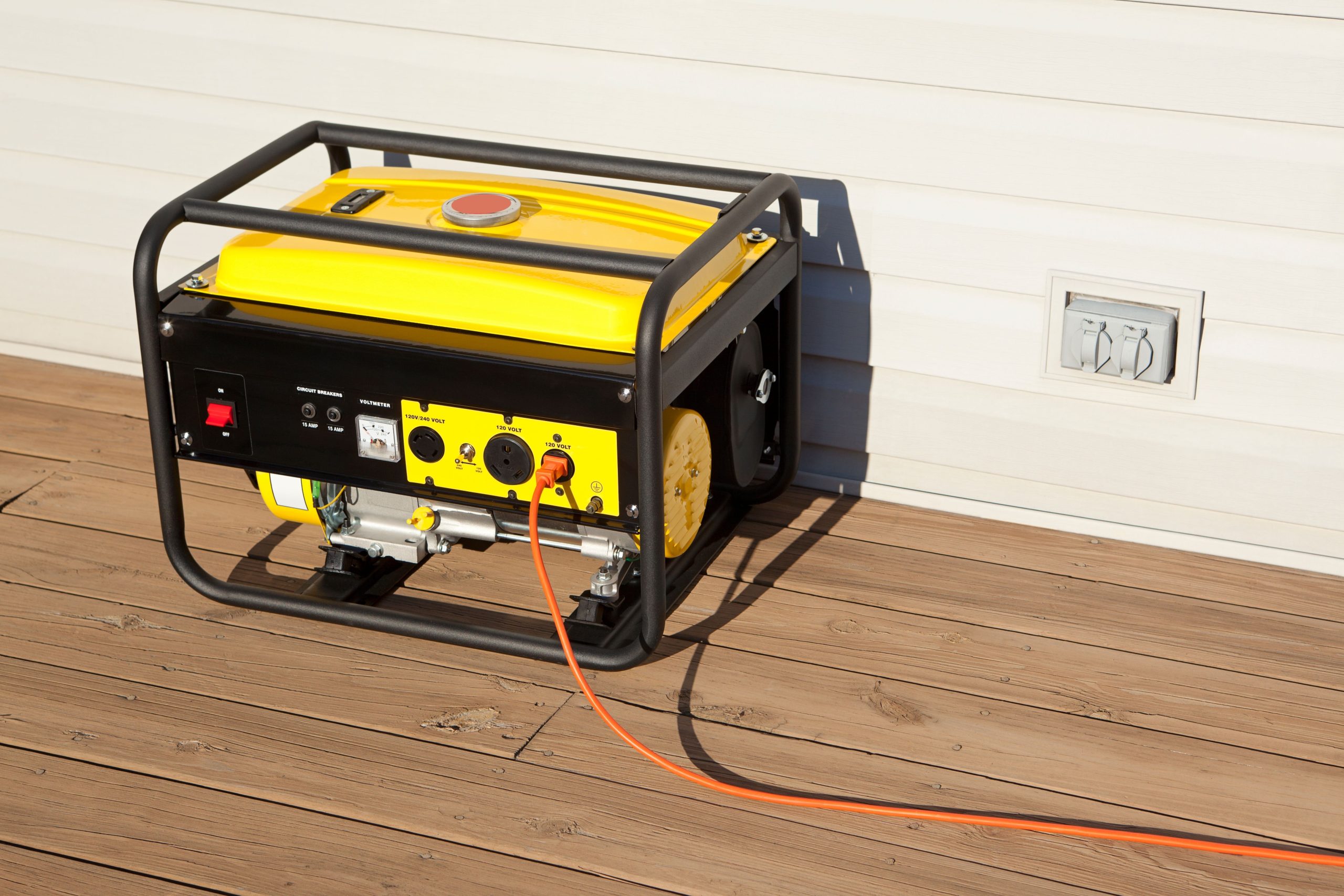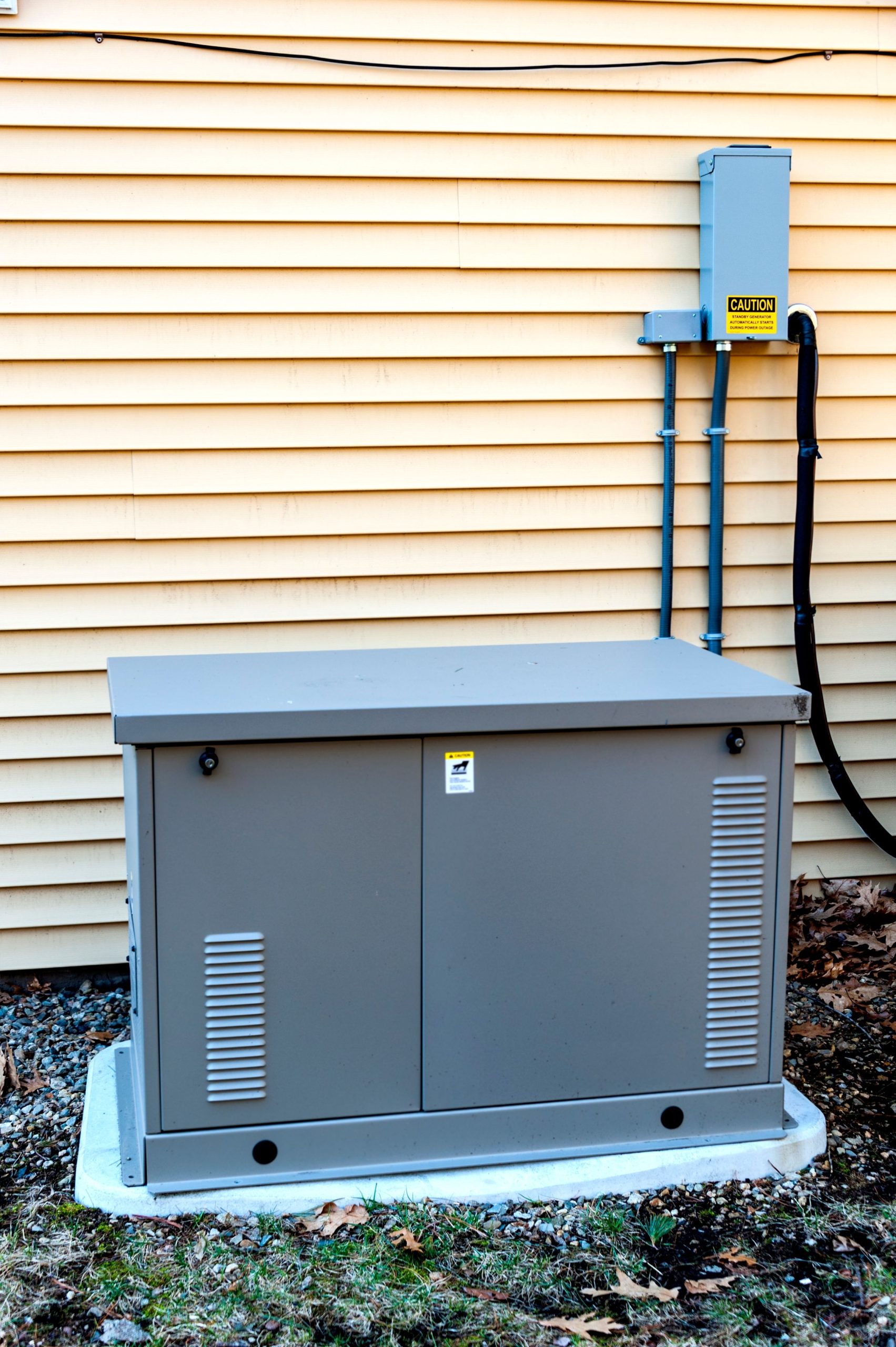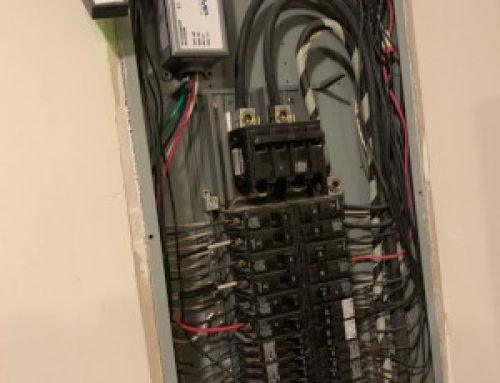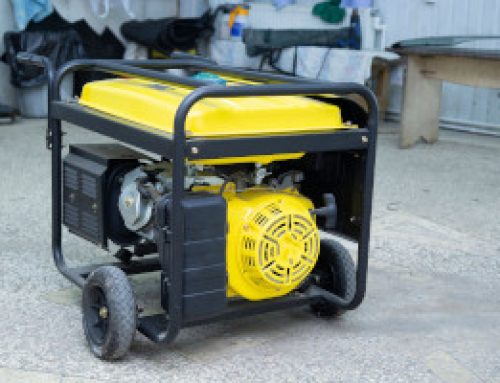In today’s world, unexpected power outages can disrupt daily life, and with the increasing frequency of extreme weather events, it’s essential to ensure that your home has a reliable backup power source.
Choosing the right size generator is critical for safety, reliability, and generator cost-effectiveness.
This article will guide you through the process of determining the right generator size based on your unique generator needs, helping you balance power reliability with cost-effectiveness.
Generator Basics: What You Need to Know
Generators are measured by how much power they can produce, shown in kilowatts (kW). Think of it like this: the higher the kW number, the more stuff your generator can power at once.

Two important terms:
- Running watts: The power needed to keep things running normally
- Starting watts: The extra power boost needed when appliances first turn on (like when your AC kicks in)
Most appliances need 2-3 times more power to start than they do to keep running.
What Do Common Appliances Actually Use?
Here’s what your everyday appliances typically need:

Essential Items
- Refrigerator: About 800 watts
- Furnace: 1,200 watts
- Sump pump: 1,000 watts
- Well pump: 1,500 watts
- Lights (whole house): 300 watts
- WiFi and electronics: 200 watts
Comfort Items
- Central air conditioning: 3,500 watts
- Electric water heater: 4,500 watts
- Clothes dryer: 3,000 watts
- Electric stove: 4,000 watts
Simple Generator Sizing by Home Size
Small Homes (Under 1,500 sq ft)
For essentials only: 10-15 kW generator
- Keeps your fridge, heat, lights, and basic outlets running
- Cost: $8,000-$12,000 installed
For whole-home comfort: 15-20 kW generator
- Adds air conditioning and most appliances
- Cost: $10,000-$15,000 installed
Medium Homes (1,500-2,500 sq ft)
For essentials only: 15-20 kW generator
- Powers all the basics plus some extras
- Cost: $10,000-$15,000 installed
For whole-home comfort: 20-24 kW generator
- Runs everything, including central air
- Cost: $12,000-$18,000 installed
Large Homes (Over 2,500 sq ft)
For essentials only: 20-24 kW generator
- Handles larger homes’ basic needs
- Cost: $12,000-$18,000 installed
For whole-home comfort: 24-30+ kW generator
- Powers everything without compromise
- Cost: $15,000-$25,000+ installed
5 Simple Questions to Find Your Size
1. What’s Most Important to You?
- Just the essentials → Smaller generator (10-20 kW)
- Normal comfort → Medium generator (20-24 kW)
- Everything as usual → Larger generator (24+ kW)
2. How Often Do You Lose Power?
- Rarely → Portable generator might be enough
- Few times a year → Standby generator worth considering
- Frequently → Definitely invest in a good standby generator
3. Do You Have Air Conditioning?
- No central air → Can use a smaller generator
- Have central air → Need at least 20 kW to run it
4. Any Special Needs?
- Medical equipment → Size up for reliability
- Home business → Include office equipment needs
- Well water → Add extra power for the pump
5. What’s Your Budget?
- Under $12,000 → 10-15 kW range
- $12,000-$18,000 → 20-24 kW range
- Over $18,000 → 24+ kW range
Gas vs. Propane: What’s the Difference?
Natural Gas Generators
- Pros: Never run out of fuel, cheaper to operate
- Cons: You need a gas line to your house
- Best for: Homes already connected to natural gas
Propane Generators
- Pros: Works anywhere, fuel doesn’t go bad
- Cons: Need to refill tanks, slightly more expensive to run
- Best for: Homes without natural gas service
Don’t Forget About Installation
Generator installation isn’t a DIY project. You’ll need:
- Electrical permits: Required in most areas
- Professional installation: Licensed electrician required
- Gas connections: For natural gas units
- Concrete pad: Where the generator sits
Generator installation cost typically adds $2,000-$5,000 to your total expenses.
Frequently Asked Questions
The Power to Choose Smart
Choosing the right type of generator for your home is not a one-size-fits-all process. It depends on your power needs, budget, and lifestyle.
To ensure you make the most informed decision, consider consulting with professionals like Brand Home Service. Our experts can guide you through the selection process, ensuring your home is powered securely and efficiently.
Contact us today for a personalized generator installation in Lafayette, IN, and get peace of mind knowing you’re prepared for any power outage that comes your way.


